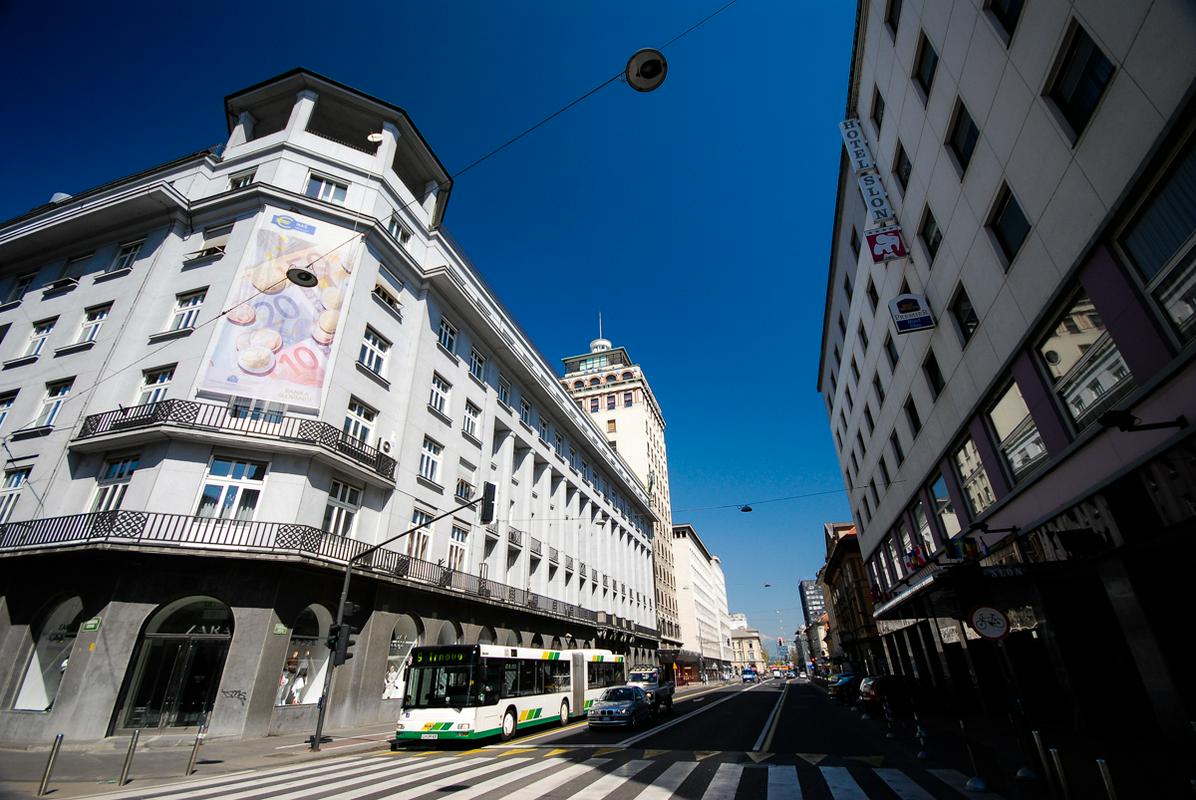Today, Hotel Slon is one of Ljubljana’s most popular hotels. A member of the Best Western chain, it provides all the necessary comforts expected from a major hotel catering to international travelers. It’s hardly the most luxurious, exciting, or fashionable establishment in Ljubljana, but it does have one important claim to fame: It’s the oldest.
According to a legend, Hotel Slon – “slon” means “elephant” in Slovenian – got its name from an unusual visitor to Ljubljana. In 1552, the Hapsburg archduke Maximillian II spent the night in the town on his way from Madrid to Vienna. The 25 year-old had recently married Maria of Spain and was bringing home various gifts given to him by Maria’s family as dowry. One of those gifts was a live elephant named either Misbaba or Soliman, depending on who is telling the story.
The citizens of Ljubljana, then a remote country town, were reportedly awed by Maximillian’s elephant friend – they had seen nothing like it in their lives. Years later, when an inn was built on the spot where the elephant stayed the night, it was named “Elephant” in honor of the legendary visitor.
A staging inn of that name stood on that spot for decades, but was replaced by a modern hotel in the 1850s. The new building was so sturdy that it even survived the 1895 Ljubljana earthquake, which caused many nearby buildings to collapse.
The earthquake was indirectly responsible for introducing new competition, however. Out of the ashes of post-earthquake Ljubljana arose a new hotel – the Grand Hotel Union --, which soon set new standards of luxury. In order to compete with Union and other Ljubljana hotels, Hotel Slon’s owner had the original building torn down and replaced by new one built in and elegant, streamlined style of the 1930s. The new building opened in 1937, and Slon became Ljubljana’s most modern hotel. The building survives to this day.
For decades after World War II, the bar at the hotel was a fashionable gathering spot famous for its music performances. Some of the biggest stars of Slovenian pop music – Elda Viler, Marjana Deržaj, Metka Štok, Irena Kohont, an others -- got their start at Hotel Slon.
Over the years, Hotel Slon also hosted a number of colorful personalities. One of them, a British writer named Fanny Copeland, spent years living in the hotel – something unheard of in Ljubljana. She moved to Slovenia after World War I and worked as a translator and a university-level English instructor. She fell in love with the country and its people. An avid mountaineer, she wrote several guidebooks to the Slovenian Alps, and lived in Ljubljana until her death in 1972, at the age of 98.
While Hotel Slon may no longer be Ljubljana’s most fashionable hotel, it certainly has the longest and most colorful history of them all.


































































